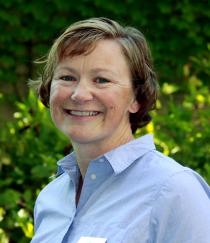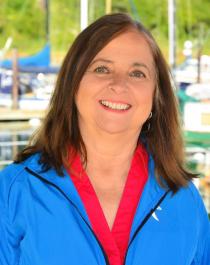Senate Committee Gives Linville, Smith Do-Confirm Recommendations
Two Washington Fish and Wildlife Commissioners received do-confirm recommendations from a state Senate committee this afternoon, while a third that lawmakers heard from wasn’t voted on and three others never got to say their piece.
Molly Linville, the interim chair and sitting vice chair of the citizen panel that oversees WDFW policy, was given the nod on a 5-2 bipartisan vote, while Lorna Smith cut a narrower path with a party-line 4-3.
Both recommendations now go to the Senate Rules Committee.
Meanwhile, Jim Anderson was essentially tabled, while newly appointed commissioners Timothy Ragen, Melanie Rowland and John Lehmkuhl may not be interviewed at all by Senate Agriculture, Water, Natural Resources & Parks, given that today was the committee’s last scheduled hearing of the session.
Commissioners still can serve if they’re not confirmed ultimately by the full Senate, though three current members are: Barbara Baker, Don McIsaac and Kim Thorburn.
As it stands, senators giving Linville a do-confirm vote included Republicans Judy Warnick, Jim Honeyford and Shelly Short, all of Eastern Washington, and Democrats Christine Rolfes and Derek Stanford of central Puget Sound districts, while committee Chair Kevin Van De Wege and Vice Chair Jesse Salomon, both Democrats representing the Olympic Peninsula and Shoreline areas, voted against the highly likable and curious Douglas County rancher.
But it was Smith’s appointment in particular that bore closely watching, especially following her vote last November against Washington’s limited-entry spring black bear hunt.
Sen. Honeyford asked the Port Townsend resident and former executive director of Western Wildlife Outreach if she was opposed to hunting bruins.
“I personally don’t have a stance against bear hunting,” Smith replied.
He also inquired if she’d purchased a hunting or fishing license in the past 10 years and she said she had not. (In fact, most commissioners don’t, though it doesn’t neccesarily mean they’re anti-ops; witness the member who may be the strongest supporter of fishing and hunting and who is also a vegan.)
Asked by Sen. Warnick if there was anything she would change about WDFW’s mandates – which not only include to “preserve, protect, perpetuate, and manage” the state’s fish, wildlife and shellfish but “attempt to maximize the public recreational game fishing and hunting opportunities of all citizens” – Smith said while she “supports the mission” she’s also “always been concerned about the word ‘impair'” in the edicts.
Per the RCWs, WDFW and the commission can preserve and harvest critters so long as they “[do] not impair” the resources, but Smith spoke to needing something of an extra “cushion” in case agency modeling is off and to prevent species from dipping into threatened or endangered range.
That might as well be the “precautionary approach” called for in the commission’s new draft conservation policy discussed last September.
Sens. Short and Salomon inquired essentially about the same thing, whether Smith felt her understanding of the science varied from WDFW’s, to which Smith told Short that she was familiar with some “excellent” information on bears gathered by the agency but the commission had been given a more limited amount.
Perhaps at first, but state carnivore manager Stephanie Simek and other staffers put together a monumental presentation on the spring hunt and then worked through a weekend answering even more questions before November’s tie vote that really was more or a social than a biological loggerhead.
Smith said that there are some commissioners willing to trust WDFW staffers’ science, but she said she’s “always asked questions” and “I’m going to continue to probe.”
Salomon asked what actions she could take as a commissioner to help out struggling salmon and steelhead runs, and Smith led off with the “frank” statement that she’d like to see the lower four Snake River dams removed (Warnick, whose district they’re near, reminded her they weren’t in Washington’s control, which Smith acknowledged), and also mentioned that she was a “proponent” of pound nets, which would have warmed the senator’s heart given his cosponsorship of a bill relegalizing the gear (but which got tangled in committee).
Smith also said there was a role too for hatcheries, which she described as “a good emergency stop for runs that are truly endangered” but that efforts were needed to ensure clipped fish weren’t breeding with unclipped ones on the spawning grounds.
It wasn’t surprising that the committee voted along party lines to give Smith a do-confirm recommendation, but it was also refreshing that two Democrats joined the three Republicans on Linville’s vote.
While Smith advertised her chops as a venison chili chef, Anderson’s bona fides as a hunter and angler were dropped as he told Sen. Honeyford he’d be fishing with fellow Yakima Valley anglers at Lake Lenice soon and that last year’s big EHD outbreak in deer herds had been noticeable to him while hunting near Pomeroy.
Anderson termed WDFW’s mandates “good” and said they provided “a framework that is clear to me.” He indicated being on the commission had given him a different perspective on the issues of translocating wolves and he was similarly pensive on the issue of pound nets.
That last one may have led Sen. Van De Wege (the other pound net bill sponsor) to not bring Anderson’s appointment up for a recommendation vote at the conclusion of the hearing, and it could explain KVDW’s and Salomon’s no votes on Linville.
He said there might be a future hearing on Commissioners Ragen, Rowland and Lehmkuhl, but there was no guarantee either. Today’s meeting was just under two hours long and included a hearing on a Senate Joint Memorial calling for a “national biodiversity strategy.”




